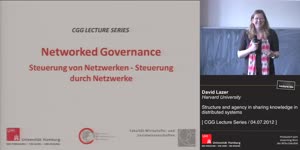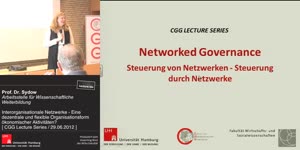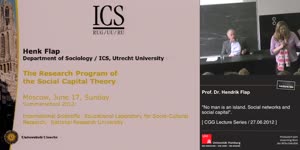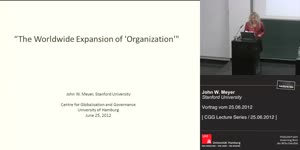Organizational and Institutional Genesis: Why do life science clusters form in some regions but not in others? - Prof. Walter W. Powell - University of Hamburg
- Lecture2Go
- Catalog
- Sonstige Einrichtungen der UHH
- Allgemeines Vorlesungswesen
- CGG Lecture Series
Catalog
Organizational and Institutional Genesis: Why do life science clusters form in some regions but not in others?
The social sciences have sophisticated models of choice and equilibrium but little understanding of the emergence of novelty. Where do new alternatives, organizational forms, and types of people come from? Combining biochemical insights about the origin of life with innovative and historically oriented social network analyses, in their new book John Padgett and Walter Powell develop a theory about the emergence of organizational, market, and biographical novelty from the coevolution of multiple social networks. They demonstrate that novelty arises from spillovers across intertwined networks and that although in the short run actors make relations, in the long run relations make actors. Padgett and Powell expand on the biochemical concept of autocatalysis— the chemical definition of life—and extend and apply constructivist thinking from chemistry to social processes of production and communication.
Walter W. Powell is professor of education and (by courtesy) professor of sociology, organizational behavior, management science, communication, and public policy at Stanford University.





